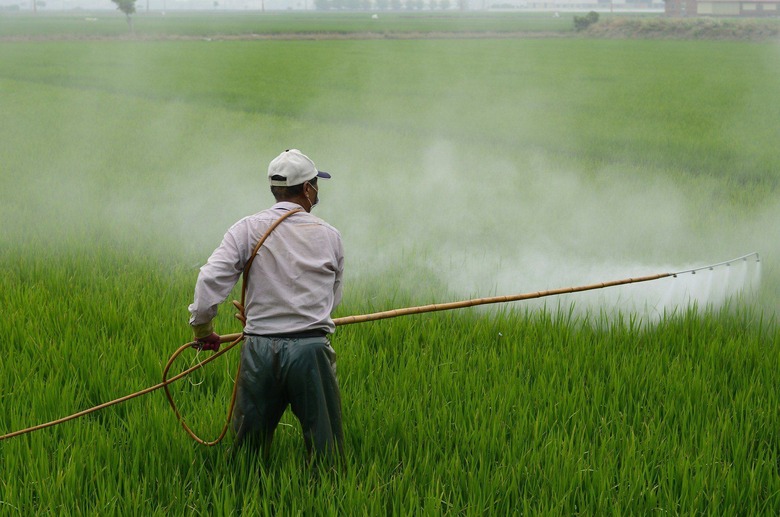Monsanto Tried To Ghostwrite Research Confirming The Safety Of Glyphosate, Uncovered Emails Suggest
In a recent lawsuit filed by cancer victims in California against major agritech firm Monsanto, previously confidential internal company emails have been made available as court documents. The emails suggest that Monsanto ghostwrote research later attributed to independent scientists in order to quash negative public opinion of the controversial chemical glyphosate.
Glyphosate — the major ingredient in the Monsanto-produced weed killer Roundup — has long been the subject of controversy among the scientific and public health communities. About 220 million pounds of glyphosate were used by farmers in the United States in 2015, according to The New York Times. While the International Agency for Research on Cancer initially labeled the chemical as carcinogenic, other peer-reviewed studies have cast doubt on these claims. In response to this back-and-forth in the scientific community, Monsanto has aggressively campaigned to erase all claims of risk and danger, even officially submitting a request to the state of California to scrap its plans to label Roundup products as carcinogenic.
In the newly revealed emails, Monsanto executive William Heydens proposed ghostwriting a paper defending the safety of glyphosate, explaining, "We would be keeping the cost down by us doing the writing, and [the independent scientists] would just edit and sign their names, so to speak." It was also implied that Monsanto had handled an earlier scientific paper in this manner, according to NPR.
When asked about these emails, Monsanto denied that their scientists had ghostwritten that paper — a report published in 2000 in the journal Regulatory Toxicology & Pharmacology — and insisted that the research had undergone rigorous peer review before publication.
The emails also revealed a close relationship between Monsanto execs and Jess Rowland, a senior regulator at the Environmental Protection Agency. An email written by Monsanto regulatory official Daniel Jenkins says, "[Rowland] told me no coordination is going on and he wanted to establish some, saying, 'If I can kill this I should get a medal.'"
The EPA had concluded in their separate review of glyphosate that it was unlikely to cause cancer. The European Chemical Agency (ECHA), an ostensibly independent watchdog, came to the same conclusion.
"The available scientific evidence did not meet the criteria to classify glyphosate as a carcinogen, as a mutagen, or as toxic for reproduction," Tim Bowmer, the chairman of ECHA's Committee for Risk Assessment said in a statement, according to The Guardian. "This conclusion was based both on the human evidence and the weight of the evidence of all the animal studies reviewed."
"Glyphosate is not a carcinogen," Monsanto said in a statement in response to the lawsuit. "The allegation that glyphosate can cause cancer in humans is inconsistent with decades of comprehensive safety reviews by the leading regulatory authorities around the world. The plaintiffs have submitted isolated documents that are taken out of context."
The Daily Meal has contacted Monsanto for further comment on these allegations, but they did not respond in time for publication of this article.
